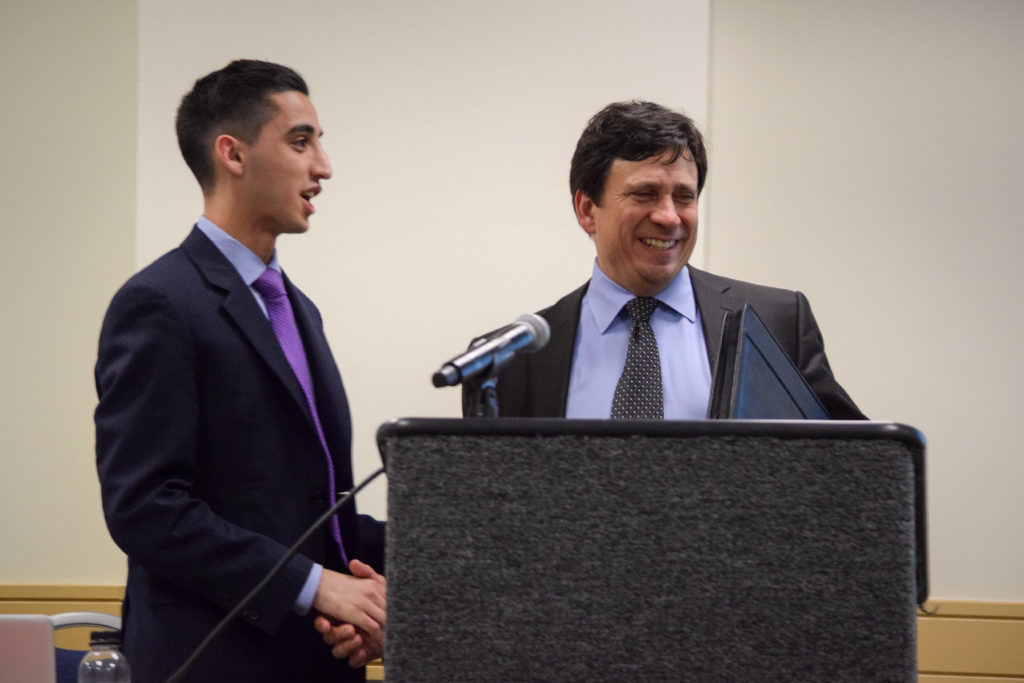Students are still waiting to hear if the University will take steps toward divesting from fossil fuels.
In September, the Student Association Senate unanimously approved a resolution supporting student calls for GW to remove all fossil fuel investments from its portfolio. Board of Trustees Chairman Nelson Carbonell declined to give the SA Senate a clear answer on whether or not the University will divest its holdings in fossil fuels during a meeting Monday night.
More than 70 percent of students who voted in the 2015 SA elections said they supported divestment, after intensive lobbying by Fossil Free GW to get the measure on the ballot.
Eric Teller, a member of Fossil Fuel GW who spoke at the SA Senate meeting Monday, said he is disappointed that the group has not gotten a serious response from the Board of Trustees.
“This isn’t nonsense, our futures are on the line. We need our University to say ‘we are not going to invest in climate change denial,’” Teller said at the meeting.
He added that officials should show more consideration for an issue that students care about.
“We are not going away. We are going to keep pressing this and making it an issue,” Teller said.
In response to students’ call for answers, Carbonell said he cannot give a statement regarding what the Board is going to do but encourages students to continue to make their voices heard.
“I am not going to insult you with something that looks like a response but isn’t really changing anything,” Carbonell said. “This should not go away. This is a legacy you have to keep going. That doesn’t mean this year you are going to get the answer you want, or next year.”
Last March, officials announced they would not recommend divestment to the Board of Trustees, citing their historic stance of non-divestment and a University policy of not releasing investment portfolio details.
While some reports state that divestment could hurt universities’ finances, universities like Stanford and Georgetown universities have recently divested.
Carbonell said Monday night that GW will not make “nonsense” proclamations by promising to divest, like other universities have.
“We are not going to do something that is an appeasement strategy because the board is not built that way,” Carbonell said. “If you are looking for that, you are not going to find it.”
Even though officials are not committing to divestment now, GW wants to shift 100 percent of its power to renewable resources in the long term, he said.
Sustainability has been one of University President Steven Knapp’s priorities. In June 2014, the University entered a partnership with GW Hospital and American University to derive more solar energy from a North Carolina company.
Carbonell highlighted other environmental advances on campus, like buildings that have earned LEED certifications.
“When you look at how these things play out over time, it happens because people are persistent,” he said. “What we need to do is continue to engage in a dialogue about this somewhat complicated topic.”
Monica Mercuri contributed to reporting.





